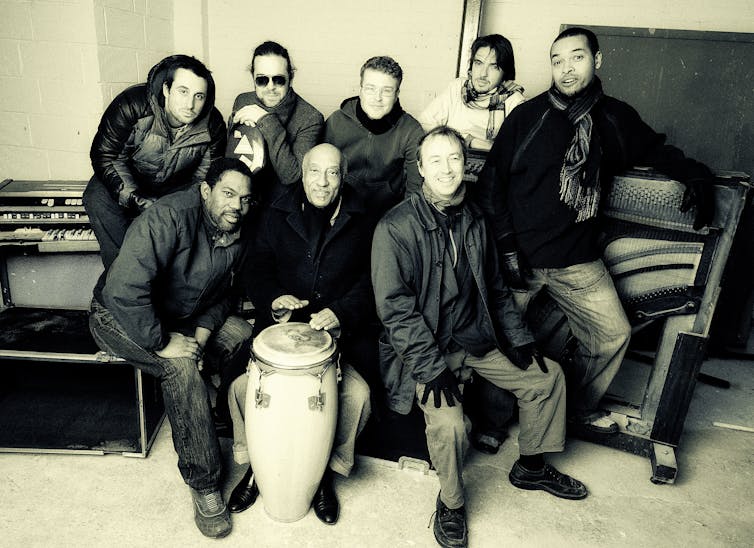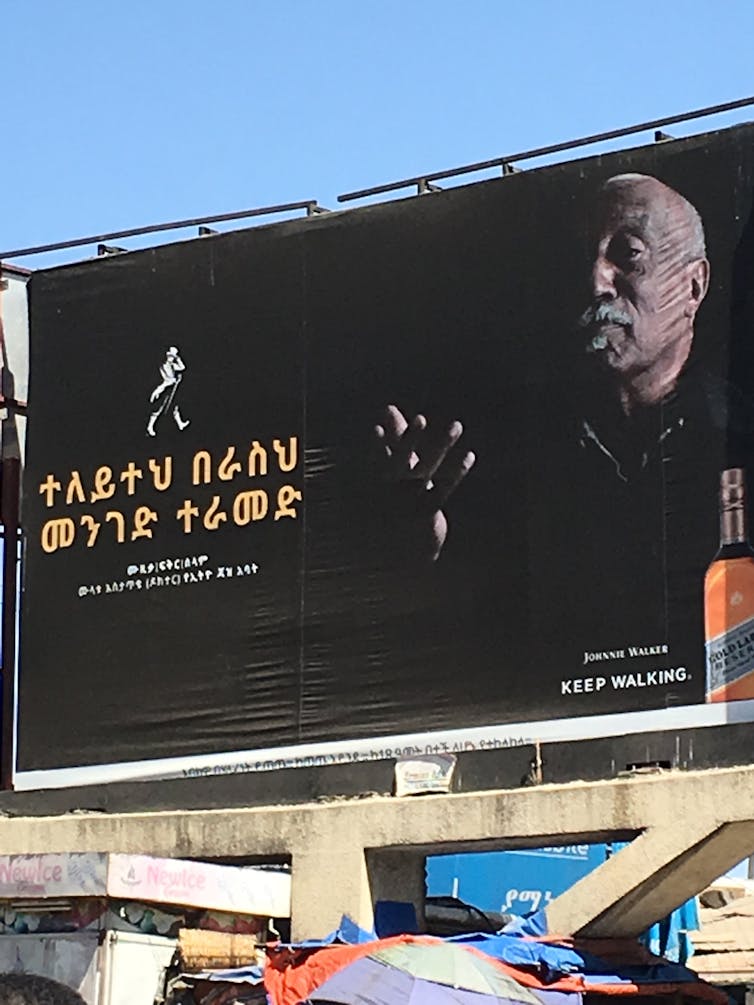Mulatu Astatke performs at the Berklee College of Music Commencement Concert in Boston
Ethiopian jazz master Mulatu Astatke will be taking a break from his extensive 2018 European concert tour to play at the 19th Cape Town International Jazz Festival. This should come as no surprise given that he has been in global motion ever since his parents sent him to study aeronautical engineering in North Wales in 1956.
But Mulatu (Ethiopians are traditionally called by their first names) soon began trumpet lessons instead, enrolling in London’s Trinity School of Music. While in London he heard performances by Caribbean and West African musicians that awoke his memories of the big bands he had enjoyed at home in Ethiopia. These performances prodded him to consider new directions.
By 1958 Mulatu was the first African student to enrol at what would soon become the Berklee College of Music in Boston. There he traded in his trumpet for the vibraphone. By 1960 he was living in New York City, where he spent more than six years taking part in the world of American jazz, interacting with Latin musicians, making records and performing in concerts.
By the time Mulatu returned to Ethiopia later that decade, he had developed the concept of “Ethio-Jazz” and was actively experimenting with this new, hybrid musical style. Ethio-Jazz draws on multiple trends from the American jazz scene, including bebop and modal jazz, combined with melodies and harmonies based in the Ethiopian modal system.
Melding of sounds
Mulatu’s innovations were anchored by his childhood memories of Ethiopian traditional secular and church music. It was further inflected by harmony classes at the Berklee School and welded together by the experience of hearing and playing jazz in London, Boston and New York City.
Mulatu’s pieces over the course of his career retain these early musical influences as well as a highly original mixture of sounds from places experienced on his lifelong itinerary.
Mulatu Astatke’s signature piece ‘Yekermo Sew’.
An example is Mulatu’s signature piece, “Yekermo Sew” (“A Man of Experience and Wisdom”) which was featured in the soundtrack of American independent filmmaker and screenwriter Jim Jarmusch‘s 2005 film “Broken Flowers” and then circulated across the world. Composed following Mulatu’s return to Ethiopia in the later 1960s, “Yekermo Sew” takes its title from a traditional Ethiopian Christian new year’s blessing in Amharic, the national Ethiopian language.
Although set in tizita, a pentatonic (or five note) Ethiopian mode closely associated with feelings of nostalgia for the past, Yekermo Sew’s melody quoted a tune from jazz composer Horace Silver’s “Song for my Father”. Mulatu transformed Silver’s melody in its phrasing and rhythm as well as expanded its ostinato – any melodic, rhythmic or chordal phrase, usually short, that’s repeated continuously through a section of a work – accompaniment.
The original recording of “Yekermo Sew” also captured technologies of the 1960s, with a solo on a Fender Rhodes electric piano popular in that era. A guitar fuzz box pedal that modified and distorted the sound, was also used.
It’s clear that “Yekermo Sew” emerged from the rhythms and sounds that Mulatu continued to absorb from Ethiopian music, plus the many new styles he encountered in the course of his professional life. This melding of sounds was reflected in his subsequent compositions, too.
Mulatu never migrated abroad as many Ethiopian musicians did in the difficult years following the Ethiopian revolution that began in 1974. He maintained his home in Ethiopia but travelled often to perform concerts, record and introduce his music to an international public.
At home, Mulatu transmitted Ethio-jazz to younger musicians, many of whom today perform in sessions at his African Jazz Village, on a regular basis. He has long researched a variety of Ethiopian traditional musics from far-flung regions of the country and has insured that these little-known styles were circulated in his frequent radio broadcasts. Along the way, Mulatu became a legend in the worldwide Ethiopian diaspora, which he visits frequently on his tours.
Travelling music
“Broken Flowers” tells the story of Don Johnston (Bill Murray), who embarks on a cross-country road-trip. Jarmusch, the film’s director, said that he’d conceived the character of Don’s next door neighbour, an Ethiopian immigrant writer named Winston (Jeffrey Wright), so that he could use Mulatu’s music as the film’s soundtrack.
In a pivotal scene, Winston presents Don with an itinerary, maps and a CD of what Winston terms “travelling music” for his trip. The subsequent scenes of travel are accompanied by Mulatu’s Ethio-Jazz.
 Mulatu and his current band Step Ahead. Alexis Maryon
Mulatu and his current band Step Ahead. Alexis Maryon
From early in his career, Mulatu and his musical output have been associated with travel. It includes his appearance in a classic poster advertising Ethiopian airlines, which is titled “Going to great lengths to please”.
But in the end, cultural mobility emerges not just as an easy metaphor for Mulatu’s music, but as the decisive factor that produced Ethio-Jazz.
Without his extraordinary mobility and exposure to a wide range of musical sounds, Mulatu could never have conceived his travelling music. Movement is key to understanding the genesis of Mulatu’s style. He made numerous references to it in an interview I did with him in 2007. It provides a pathway through which we can understand the way in which this music is heard by so many listeners, including Jarmusch, as being emblematic of movement.
 A Johnny Walker billboard in Addis Abeba featuring Mulatu. Kay Kaufman Shelemay
A Johnny Walker billboard in Addis Abeba featuring Mulatu. Kay Kaufman Shelemay
Clearly this association with mobility continues today. During a recent visit to Ethiopia, I passed by a billboard near the centre of downtown Addis Ababa for Johnny Walker scotch featuring Mulatu Astatke.
The caption carries Johnny Walker’s iconic line:
Keep Walking.
It is clear that Mulatu is still “in motion”.
This article is based in part on Shelemay’s recent article : “Traveling Music: Mulatu Astatke and the Genesis of Ethiopian Jazz.” In Jazz Worlds/World Jazz. Edited by Philip V. Bohlman and Goffredo Plastino. Chicago and London: The University of Chicago Press, 2016, pp. 239-257.
Kay Kaufman Shelemay, G. Gordon Watts Professor of Music and Professor of African and African American Studies, Harvard University
This article was originally published on The Conversation. Read the original article.
